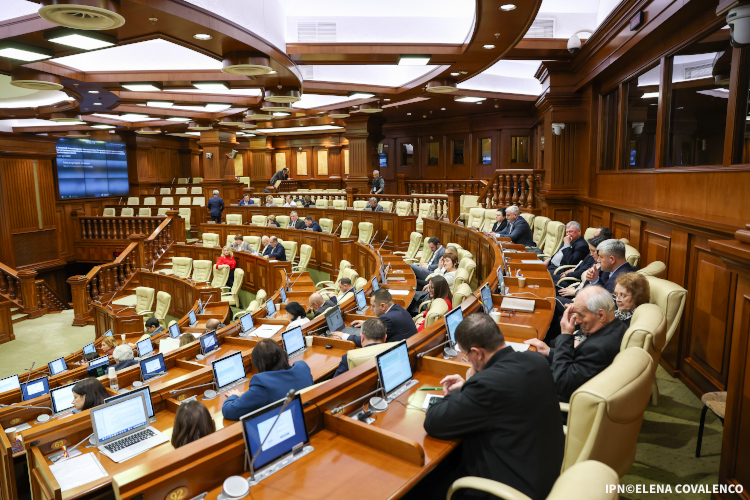Persons sentenced to life imprisonment will no longer be able to simultaneously benefit from both a sentence reduction through amnesty and early conditional release or substitution of the unserved part of the sentence. The interpretative law regarding Article 7 of the Amnesty Law, in relation to Articles 91 and 92 of the Criminal Code - adopted by Parliament in two readings on Friday, April 4 - has been published in the Official Gazette, IPN reports.
According to lawmakers, the purpose of this law is to prevent attempts by life-sentenced inmates to be released early through legal loopholes. Thus, a person whose life sentence has been commuted cannot also be released conditionally before serving their sentence, nor can the remainder of their sentence be substituted.
These provisions will also apply to individuals whose sentence terms were reduced or commuted under the Amnesty Law adopted on the occasion of the 30th anniversary of Moldova's independence, and who were subsequently released early.
More specifically, the effects of the interpretative law will also apply retroactively to persons who had already benefited from an erroneous interpretation of the legal provisions in question.
The release of two criminal gang leaders has sparked public controversy. MP Olesea Stamate, one of the authors of the amendment that enabled the release of inmates serving life sentences, was expelled from the PAS party. Stamate claimed that all her actions were legal and in accordance with procedure.
Following the scandal, the head of the National Penitentiary Administration (ANP), Anatolie Falca, resigned at the request of Prime Minister Dorin Recean.
One of the released criminals is Alexandru Sinigur, known as “ Синий”, who led a criminal organization involved in a series of murders in Moldova and Ukraine. In 2006, after being extradited from Russia, he was sentenced to life in prison for extremely serious crimes. Sinigur was accused of several contract killings, including the 2003 murder of businessman Piotr Sari. He was also charged with hostage-taking, extortion, and banditry. Shortly after his release, he was arrested again in another murder case.
The second released mobster is Iurie Radulov, alias “Babior,” the leader of one of Moldova’s most violent criminal groups, responsible for dozens of victims. In the late 1990s, Radulov was involved in the brutal assassination of several prominent figures in the Transnistrian region, including the head of the Anti-Corruption Department in Tiraspol, Alexei Burdiuja. In 1999, he was involved in the murder of businessman Isak Lopatinski. Radulov’s group was responsible for numerous violent crimes, including eliminating rivals from the criminal underworld. One such case was the assassination of a former partner, who was found shot in the head after trying to operate independently. Radulov reportedly left Moldova shortly after his release.

